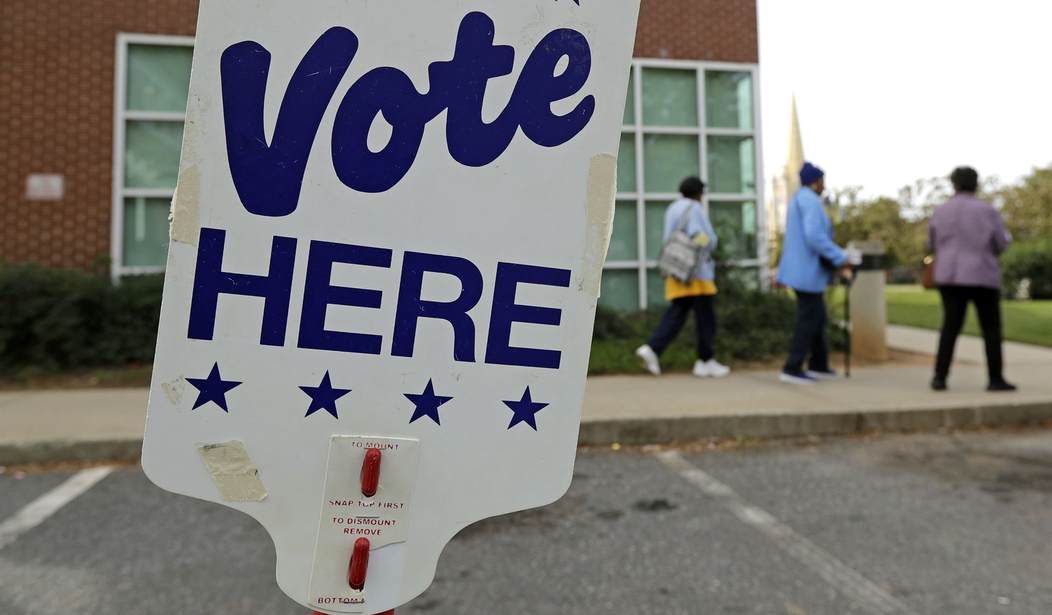As Americans prepare to cast ballots in November’s consequential midterm elections — if they haven’t already in states that allow early voting — there’s a looming threat to election integrity. No, it’s not ballot machines, poll workers, or hanging chads. It’s ranked choice voting.
Only Maine and Alaska have legally changed their voting systems to use RCV, with Alaska currently grappling with its first full election cycle under the new means of electing government representatives after narrowly approving the change on a 2020 ballot question.
And while a Democrat won and ended what had been Republican control of the Last Frontier’s lone at-large seat in the U.S. House of Representatives, Democrats are not totally onboard with RCV in their jurisdictions.
As it turns out, ranked choice voting has bipartisan opposition, including from nationally known Democrats who share many of the same concerns Republicans do when it comes to throwing out the existing voting system and replacing it with the less-transparent and less-democratic RCV system.
In California, a supposedly Democrat uniparty-controlled utopia of leftism, Governor Gavin Newsom has made a name for himself within the electoral system community as a staunch opponent of ranked choice voting.
Recommended
Going back to 2001 when he was on the San Francisco Board of Supervisors, Newsom has opposed allowing RCV in jurisdictions to which he was elected. Newsom’s concerns were overruled at the time and the City by the Bay approved RCV with around 59 percent of the vote. But nearly two decades later as governor, Newsom vetoed a bill that would have merely given more cities and counties in the Golden State the ability to implement ranked choice voting.
Newsom explained his opposition to ranked choice voting in his veto message to the 2019 bill to allow RCV in more jurisdictions. Noting that “ranked choice is an experiment that has been tried in several charter cities in California,” Newsom said. “Where it has been implemented, I am concerned that it has often led to voter confusion, and that the promise that ranked choice voting leads to greater democracy is not necessarily fulfilled. The state would benefit from learning more from charter cities who use ranked choice voting before broadly expanding the system,” he concluded.
As Townhall has reported, and it’s strange to even write this, Gavin Newsom is correct. Ranked choice voting does not fulfill its promise of making elections more democratic. Under an RCV election system, things can actually become more undemocratic. Instant disenfranchisement occurs if a voter — either on principle or due to confusion — doesn’t vote for subsequent second, third, etc.-choice candidates and their preferred candidate is eliminated. In such cases, their ballot is thrown out and only other voters who ranked other candidates have their votes then count toward the final outcome. Yet RCV proponents claim that their system better promotes the will of a majority rather than plurality, even though some individuals’ votes get thrown out entirely in the process.
Newsom’s predecessor, former Democrat Governor Jerry Brown, also opposed ranked choice voting and vetoed a similar bill that would have allowed other California localities to enact RCV. In his explanation for striking down the bill and preventing it from becoming law, Brown said that “in a time when we want to encourage more voter participation, we need to keep voting simple,” and “ranked-choice voting is overly complicated and confusing. I believe it deprives voters of genuinely informed choice,” Brown added.
In Nevada, a ballot question on RCV will be posed to voters — one that’s opposed by prominent Democrats holding office in the Silver State including the governor and both U.S. senators.
“We must protect access to the ballot box for every Nevadan,” Democrat Senator Catherine Cortez Masto said. “This proposal would make voting more complicated and difficult at a time when we should be encouraging everyone to participate in our democracy,” she added as she prepares to face voters in an uphill battle against GOP challenger Adam Laxalt in November.
Democrat Senator Jacky Rosen called the ballot question on RCV a “risky and experimental proposal” that “would fundamentally undermine our democracy and lock these confusing election changes into our state Constitution.”
Democrat Governor Steve Sisolak hyped the fact that “In Nevada…our electoral system is ranked one of the best in the nation” and said “we should be finding ways to continue our progress, not pushing a rushed constitutional change that would make our system more confusing, error-prone and exclusionary.”
These Democrats’ concerns mirror what conservatives have said in opposition to the implementation of RCV and, in today’s polarized political landscape, the bipartisan opportunity to pass laws protecting non-RCV “instant runoff” systems should lead to action doing so. Already, in Tennessee and Florida, state lawmakers passed preventative bills to ban RCV before attempts to institute the system could be mounted.
Groups such as the Honest Elections Project (HEP) hope that RCV bans similar to those passed in Tennessee and Florida will become part of the broader push to secure America’s elections while increasing transparency and strengthening voter trust in election outcomes. As HEP’s Executive Director Jason Snead explains, RCV’s inherent confusion “is ripe for voters to scratch their heads and wonder, ‘What is going on here?’” The Honest Election Project’s goal is to “restore and improve voter confidence in the democratic process” which is done with elections run with “clear rules and transparency.”
In this case, there’s agreement on that point between conservatives and prominent Democrats, including leftist Dems such as Gavin Newsom. If Democrats need to fight it out among themselves whether they really support RCV or not, that’s up to them. But as long as there’s bipartisan agreement, let’s listen to anti-RCV Democrats and take action to ban its implementation.
























